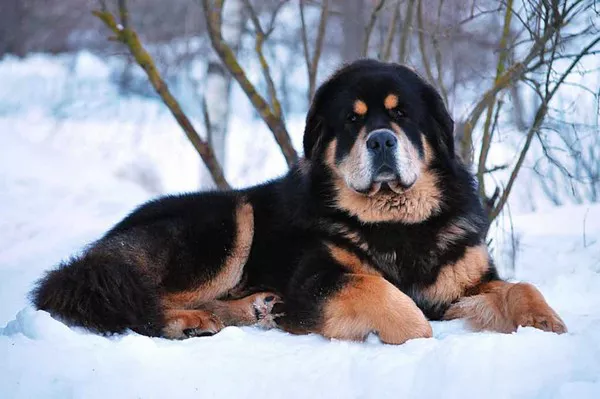When it comes to guarding and protection, few breeds can match the prowess of the Caucasian Shepherd Dog and the Tibetan Mastiff. These formidable canines have been bred for centuries to safeguard livestock and homes from potential threats. In this article, we will delve into the advantages and disadvantages of fighting capabilities exhibited by these two powerful breeds.
1. Advantages of the Tibetan Mastiff in Combat:
Size and Strength:
Tibetan Mastiffs are renowned for their massive build and impressive strength, making them formidable opponents in combat situations.
Their muscular physique and robust bone structure give them an inherent advantage when facing threats.
Protective Instincts:
Tibetan Mastiffs have an innate protective instinct deeply rooted in their breeding history.
They are fiercely loyal to their families and can be exceptionally protective when it comes to guarding property.
Fearless Guardians:
These dogs are known for their fearlessness, especially in the face of danger.
Tibetan Mastiffs will not hesitate to confront intruders or potential threats, which makes them ideal for protection purposes.
Impressive Bite Force:
Tibetan Mastiffs possess a formidable bite force, which can deter even the most determined intruders.
This bite force can be a significant advantage when defending against predators or trespassers.
Weather Resilience:
Originating from the harsh Tibetan plateau, these dogs are well-suited to extreme weather conditions.
Their thick double coat provides insulation against both cold and hot weather, allowing them to remain vigilant year-round.
2. Disadvantages of the Tibetan Mastiff in Combat:
Independent Nature:
Tibetan Mastiffs are known for their independent and sometimes stubborn nature.
This independence can make them less trainable compared to some other breeds, requiring a firm and experienced handler.
Aggressiveness Towards Strangers:
While their protective instincts are commendable, Tibetan Mastiffs can be overly aggressive towards strangers.
Socialization and training are crucial to prevent unwarranted aggression.
Space Requirements:
Due to their large size and territorial instincts, Tibetan Mastiffs require ample space to thrive.
They may not be suitable for apartment living or confined spaces.
High Maintenance Coat:
Their thick, luxurious coat requires regular grooming to prevent matting and maintain their overall health.
Neglecting grooming can lead to skin issues and discomfort.
Health Concerns:
Like many large breeds, Tibetan Mastiffs are prone to certain health issues, including hip dysplasia and bloat.
Regular veterinary care is essential to address these concerns.
4. Advantages of the Caucasian Shepherd Dog in Combat:
Powerful and Durable:
Caucasian Shepherd Dogs, also known as Caucasian Ovcharkas, are known for their impressive strength and endurance.
They can withstand physical challenges in combat scenarios.
Strong Territorial Instincts:
These dogs have an innate territorial instinct and will fiercely protect their home and family.
Their loyalty and determination make them excellent guardians.
Trainability:
While they have a strong will, Caucasian Shepherds are generally more trainable than Tibetan Mastiffs.
They respond well to consistent and patient training methods.
Adaptability:
Caucasian Shepherd Dogs can adapt to various climates, making them suitable for a wide range of environments.
They can thrive in both cold and hot regions.
Low Maintenance Coat:
Their shorter coat requires less grooming compared to Tibetan Mastiffs, reducing the time and effort required for upkeep.
5. Disadvantages of the Caucasian Shepherd Dog in Combat:
Aggressiveness Towards Other Animals:
Caucasian Shepherds can be aggressive towards other animals, including other dogs.
Proper socialization is crucial to prevent conflicts.
Stubbornness:
These dogs can exhibit stubborn behavior at times, requiring a patient and experienced owner to handle them effectively.
Exercise Needs:
They have high energy levels and require regular exercise to prevent boredom and destructive behavior.
Daily walks and playtime are essential.
Health Concerns:
Caucasian Shepherd Dogs may be prone to certain health issues, including hip dysplasia and obesity.
In conclusion, both Tibetan Mastiffs and Caucasian Shepherd Dogs possess unique advantages and disadvantages when it comes to combat and protection. The choice between these breeds should be based on individual needs, lifestyle, and the commitment to provide proper training and care.


